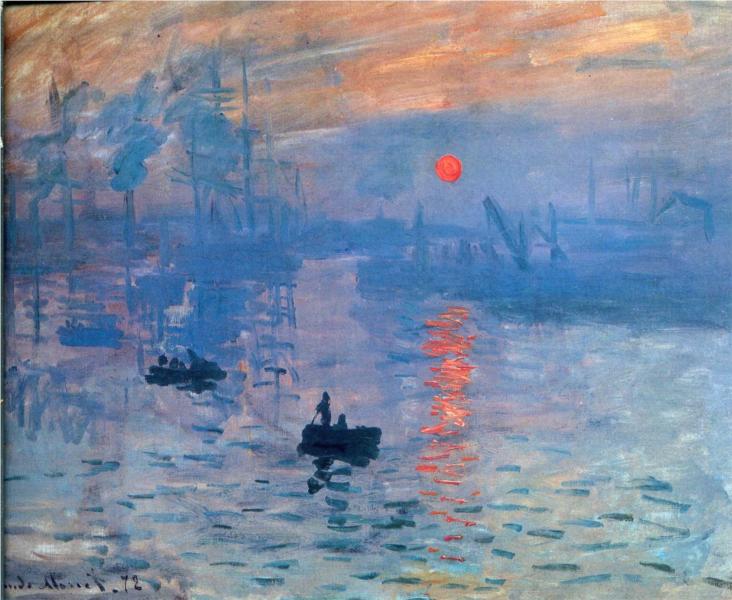
Every moment is eternity’s sunrise.
- He who binds himself to a Joy / Does the winged life destroy; / But he who kisses the Joy as it flies / Lives in Eternity’s sunrise. [William Blake, “Several Questions Answered”]
- I have always been delighted at the prospect of a new day, a fresh try, one more start, with perhaps a bit of magic waiting somewhere behind the morning. [J. B. Priestley]
In every moment of every day, the rest of life lies before us. We could look at it in other ways but the attitude associated with this view is conducive to a positive frame of mind, and a life of positive action and achievement. It is optimism with a particular focus on time.
Living like this is living creatively, with hope and without regret; forgiving and letting go not only of the past but of the present moment as it flies, and then living fully in the next moment as it arrives. It is about being centered in the only time and place where we ever are, the here and now, yet it is also about being mindful of our place in time, which marches inexorably forward.
Living in eternity’s sunrise implies an attitude of eagerly embracing life as an invitation, and dancing enthusiastically. It implies that we are taking life’s journey in the only place and time where any journey can ever begin, or be: in the ever-present here and now.
Real
True Narratives
- Delia Ephron, Life on Tenth: A Second Chance at Life (Little, Brown & Company, 2022), “. . . though it opens with Jerry’s death — is less the story of a woman losing a husband than it is that of a woman falling in love again at age 72.”
Technical and Analytical Readings
Photographs
Documentary and Educational Films
Imaginary
Fictional Narratives
Poetry
He who binds to himself a joy / Does the winged life destroy; But he who kisses the joy as it flies / Lives in eternity's sunrise.
[William Blake, “Eternity”]
Music: Composers, artists, and major works
Daybreak and early morning ragas:
- Raga Bhairavi is a Hindustani raag for early morning (sunrise), with a gentle, feminine quality. Performances are by Ali Akbar Khan, Nikhil Banerjee and Manish Vyas and Bikramjit Singh.
- Ahir Bhairav – performances are by Hariprasad Chaurasia & Zakir Hussain, Shivkumar Sharma, D. Madhusudan, Ashwini Bhide, and Amir Khan.
- Bhatiyar – performances are by Nikhil Banerjee, Kumar Gundharava, Smit Terari, and Rajan/Mishra.
- Bibhas (Vibhas) – performances are by Kishori Amonkar, Ravi Shankar, and Faivaz Khan.
- Jogiya – performances are by Vilayat Khan, Bhimsen Joshi, and Bhimsen Joshi.
- Raga Miyan ki Todi, an early morning raag (Todi – Miya ki Todi), “has the ability to evoke the same mood of playfulness of a newborn lying in bed content, smiling and playful.” Performances are by Ravi Shankar, Asad Ali Khan, Bhimsen Joshi, Nikhil Banerjee, Kenkatesh Kumar, Rashid Khan, and Kishori Amonkar.
David Binney is a jazz saxophonist, many of whose albums are themed around time:
- “Tomorrow’s Journey” (2022) (74’): “This record is me pushing my compositions for an acoustic ensemble setting and playing to new levels with a group of musicians who were able and willing to learn the music but capable of bringing fire and energy from live performances into the studio.” [Binney]
- “Where Infinity Begins” (2022) (61’)
- “A Glimpse of the Eternal” (2022) (57’)
- “Here and Now” (2019) (42’)
- “The Time Verses” (2017) (66’) “finds the composer drawing upon everyday life for inspiration.”
Compositions:
- Stefania de Kenessey, Magic Forest Dances, for oboe and piano (approx. 26’), “take place in a fantastical, other-worldly realm.” The music “takes us through a series of encounters with mysterious spirits and playful sprites, then ends on a joyous note with the bright, upbeat dance of the Finale.” [de Kenessey]
- David Maslanka, Wind Symphony No. 4 (1993) (approx. 28-30’): “The theme that is always in the forefront of the melody represents the continuous cycle of creating a spontaneous rise in the impulse to shout for the joy of life.”
Albums:
- David Bennett & Vilhelm Bromander, “Within Reach of Eventuality” (2022) (49’): “The notes are given space and separation, room to breathe. It all feels very considered, very restrained: it’s no improv free-for-all, there are no frenzied climaxes or blasting crescendos. Instead, they demonstrate a sharp focus on a fairly limited range of sounds and spaces, and the result is an album that has a strong cohesion.
- Vilhelm Bromander, “In This Forever Unfolding Moment” (2023) (33’)
Music: songs and other short pieces
- Cat Stephens, “Morning Has Broken” (lyrics)
- Franz Schubert (composer), Pensa, che questo istante (Consider That This Moment), D. 76 (1813) (lyrics)
Visual Arts
- Paul Jenkins, Phenomena Lasting Dawn (1977)
- Paul Klee, Rising Sun (1907)
- Claude Monet, Lilacs in the Sun (1872)
- Claude Monet, Autumn at Argenteuil (1873)